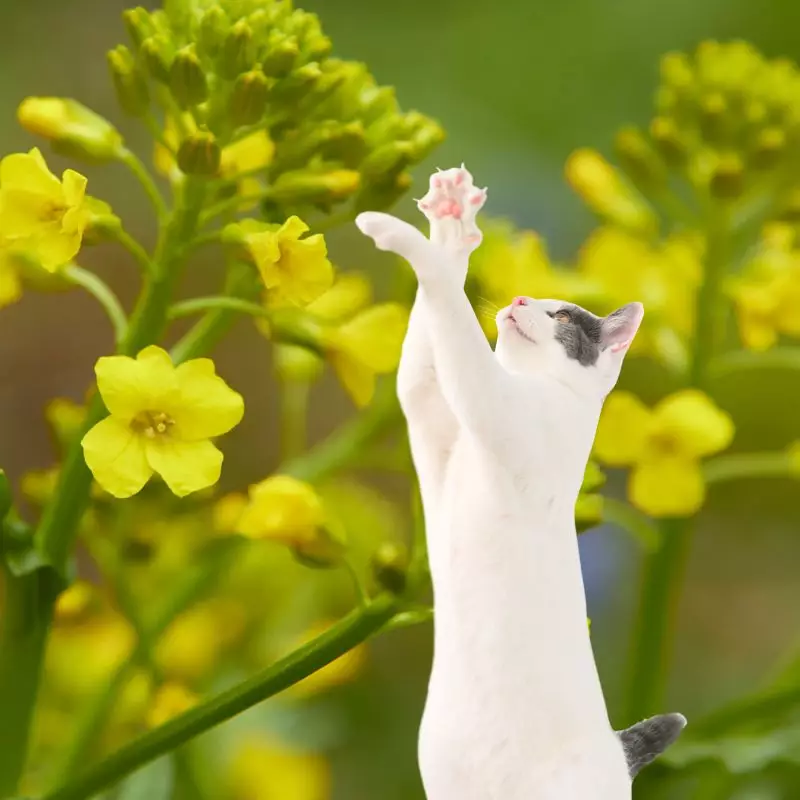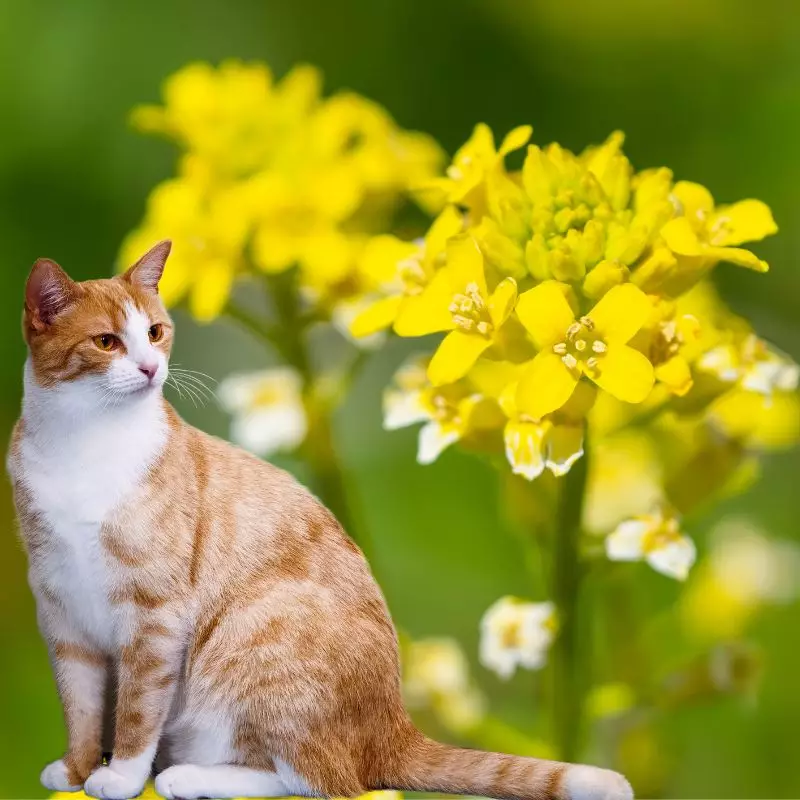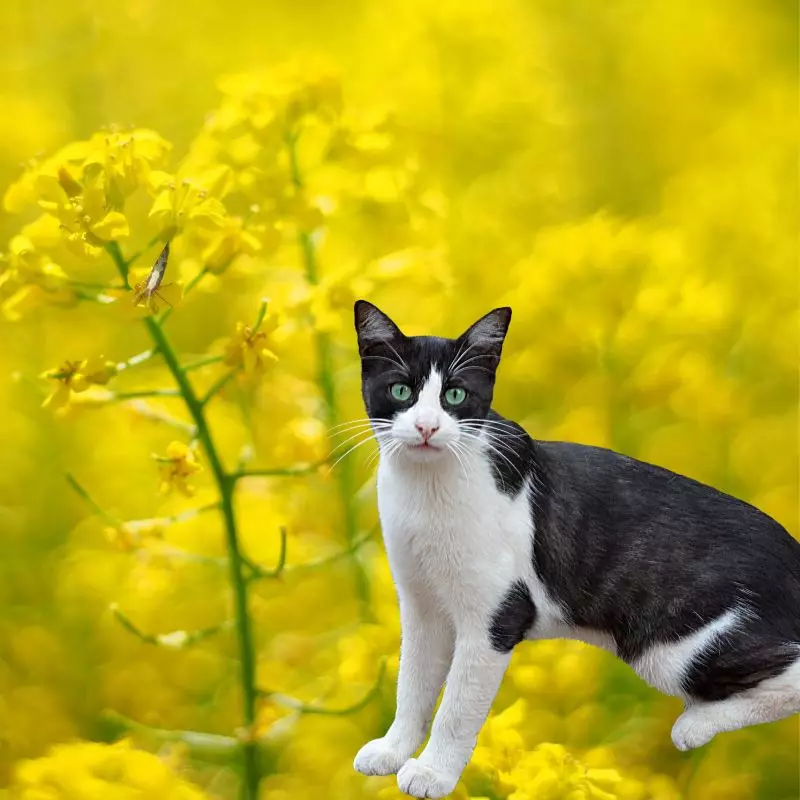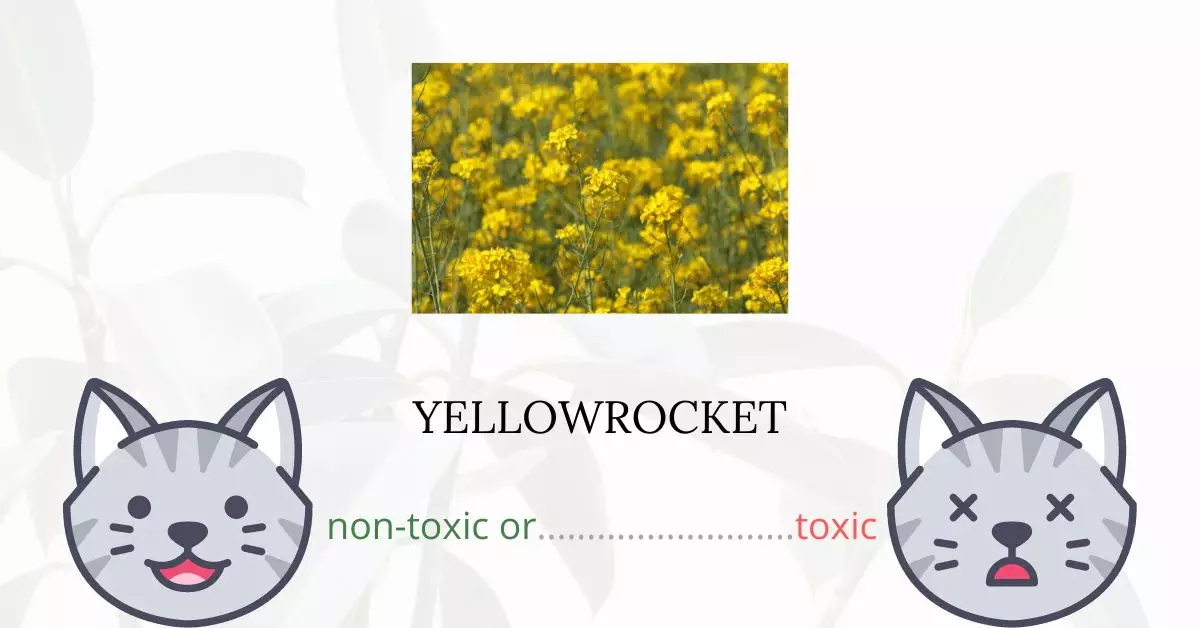Yellowrocket or Winter Cress is not toxic to cats.
To ensure the utmost accuracy and relevance, this article was produced in collaboration with a team of experienced DVMs (doctors of veterinary medicine). Their expert knowledge and contributions provide reliable insights into the potential risks associated with various plants, particularly Yellowrocket in this context. Furthermore, our information is bolstered by thorough research from high-authority sources such as the ASPCA and PetMD.
It’s worth noting that the American Society for the Prevention of Cruelty to Animals (ASPCA) has listed Yellowrocket as a non-toxic plant for cats. Therefore, cat owners can feel assured about the safety of their feline companions when around this plant.
Can Cats Eat Yellowrocket or Winter Cress?

Similar to other non-toxic plants, a tiny bite of this plant will not bring your cats into danger. But overeating or consuming this plant regularly can cause cats to have an upset stomach.
Since carnivorous animals like cats do not have the capability to digest plant materials, they end up experiencing indigestion and other GI tract issues. Cats may show common gastrointestinal symptoms like vomiting and diarrhea. These symptoms are only short-lived and will subside soon after the cat’s body has eliminated the plant matter from its body.
What is Yellowrocket or Winter Cress?

Barbarea vulgaris, also known as the yellow rocket, is a native of North Africa and Eurasia. Additionally, it has reached New Zealand and North America.
This plant has basal rosettes with vibrant, dark green leaves and can reach a height ofone1 meter. The yellow rocket has a branched base and a ribbed, hairless stem.
Yellow rocket flowers appear in dense terminal groups above the foliage in the spring. They have four bright yellow petals and are 7-9 mm (0.28-0.35 in) long. The flowering season lasts from about April to July. This Brassicaceae plant produces fruit in the form of a 15-30 mm pod.
Yellow rocket is also commonly known as wintercress, herb barbara, rocket cress, yellow rocket cress, winter rocket, and wound rocket.
Keeping Cats Away From Yellowrocket or Winter Cress

Keeping your cats entertained and mentally stimulated inside your home is a good way to distract them from wandering away. Bored cats are more inclined to mess with plants or even eat them.
Cats have sensitive noses, so strong odors can be a deterrent. Citrus is unappealing to cats, therefore the next time you eat an orange or squeeze a lemon, chop up the peels and scatter them around the area you want the cats to avoid. Sprays containing citrus, citronella, lavender, peppermint, lemongrass, or rosemary oil mixed with water can also be used in those areas.
Instead of sprays, try growing cat-repelling plants like rosemary, lemon thyme, rue, lavender, or Russian sage. Alternatively, you can scatter the dried leaves of these plants around the areas you want to protect.
You may also give your cat his own space on the other side of your yard. Try creating an outdoor litter filled with dry sand and plant some catnip or valerian plants near it. This method will attract your cats and distract them from coming near your houseplants.
Plants to Avoid For Your Cats
If you are a cat owner and unsure if the plants growing in your yard are harmful to your cats, check out this list of toxic plants for cats. You can also check our list of non-toxic plants for cats.





